
They say shakshouka, a common Israeli breakfast dish, is difficult or taxing to make, or that canned tomatoes are the best option to create a thick and savory sauce. But it was the first thing I could think of to whip up when I could find little else but ripe tomatoes and fresh eggs in the icebox one morning last week. I don’t mean that in a nostalgic way, using the word, “icebox” — for the past couple weeks, I’ve been living on a single-hull sailboat docked at the San Francisco marina.
All too often, shakshouka is prepared with canned tomatoes, but as long as they’re in season, juicy, sweet tomatoes straight from the farm can make for a fresher-tasting version of the hearty staple, enhanced with more minimal spices. Broken down to a thick ooze in a pan with garlic and roasted peppers, raw eggs are placed in to poach, and that’s it. It’s also great to sop up with a slab of good, crusty, San Francisco sourdough bread, which is always “in season” around here.

Because the eggs are poached directly in the spiced tomato-based sauce, shakshouka is a practical one-pot breakfast, dinner or lunch. And I can appreciate that, cooking in such tight constraints as a boat with only one working stovetop burner. (Apparently its twin burner and oven both went kaput after an accident with an espresso maker, which I was not part of.)
 the interior stove and exterior of my temporary home
the interior stove and exterior of my temporary home
The boat is owned by someone whom I’ve never met, but one of his crewmates, Jenna, has been staying on board and keeping watch of it while he’s been gone. I met Jenna through a mutual friend, and for no good reason, she’s been letting me stay and play roommate on the boat. I just hope that the meals I’ve been able to whip up inside this thing can attempt to earn my keep. And outside it, too; the boat has an outdoor grill on the deck, which I recently used to grill a butterflied fish and some vegetables.
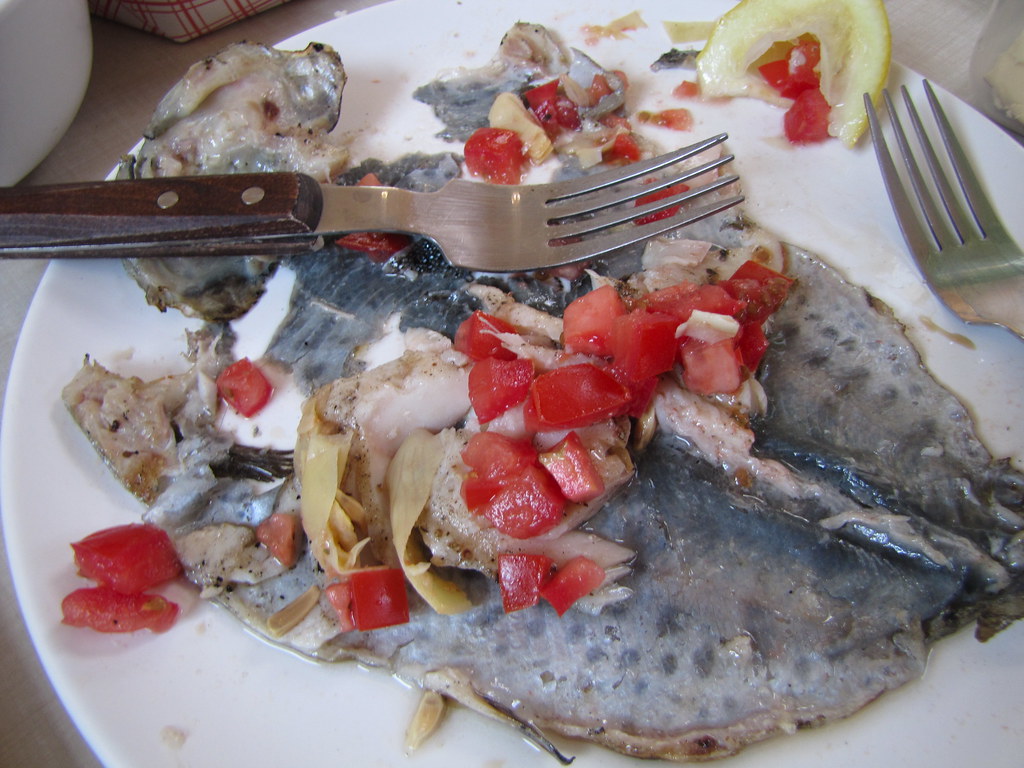 a trout fillet gets grilled on the dock, and topped with tomato and artichoke
a trout fillet gets grilled on the dock, and topped with tomato and artichoke
So if you can make it here, you can certainly make shakshouka anywhere, I’m convinced. Over a campfire, on a grill, or anywhere there’s an open flame and a wide saucepan — just not in a microwave. I was able to roast a red pepper for this dish, too, by holding it with tongs directly above the gas flame of the stove. The pepper is rotated until its skin was blackened and crispy all over (which you can just as easily do on your range at home).
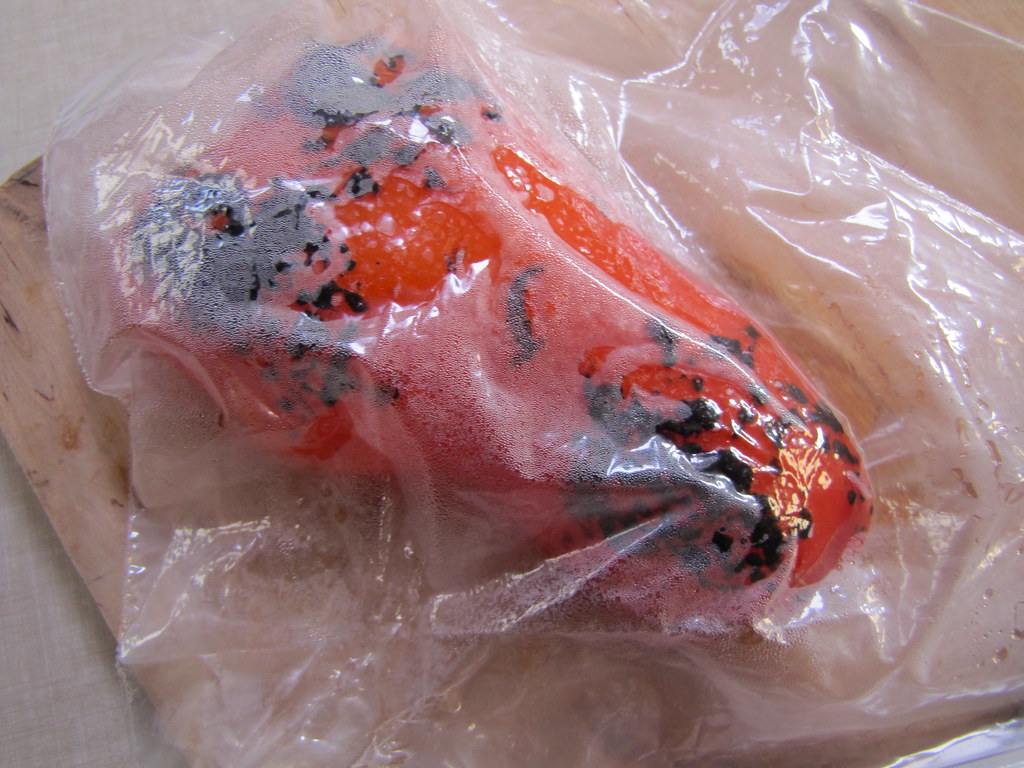 a just-roasted red pepper rests in an airtight bag until skins are easy to remove
a just-roasted red pepper rests in an airtight bag until skins are easy to remove

extra-large eggs from the farmers’ market
After being placed in a plastic bag a few minutes, the pepper’s skin shrank back from the flesh and easily peeled off with the help of a knife. The chopped roasted peppers add to a slightly spicy flavor in the tomato sauce. For the remainder of the spices, I was a bit at a loss; shakshouka usually involves paprika or chile powder for a hint of spice, and a dash of coriander sometimes. Well, I rummaged around in the “pantry” shelf of the boat, and came across a canister of stuff called “salmon rub.” The sailors had evidently had some tasty meals while out on the open sea. I looked at the ingredients, which were comprised of brown sugar, chile, cumin and salt, and gave it my seal of approval for this dish.
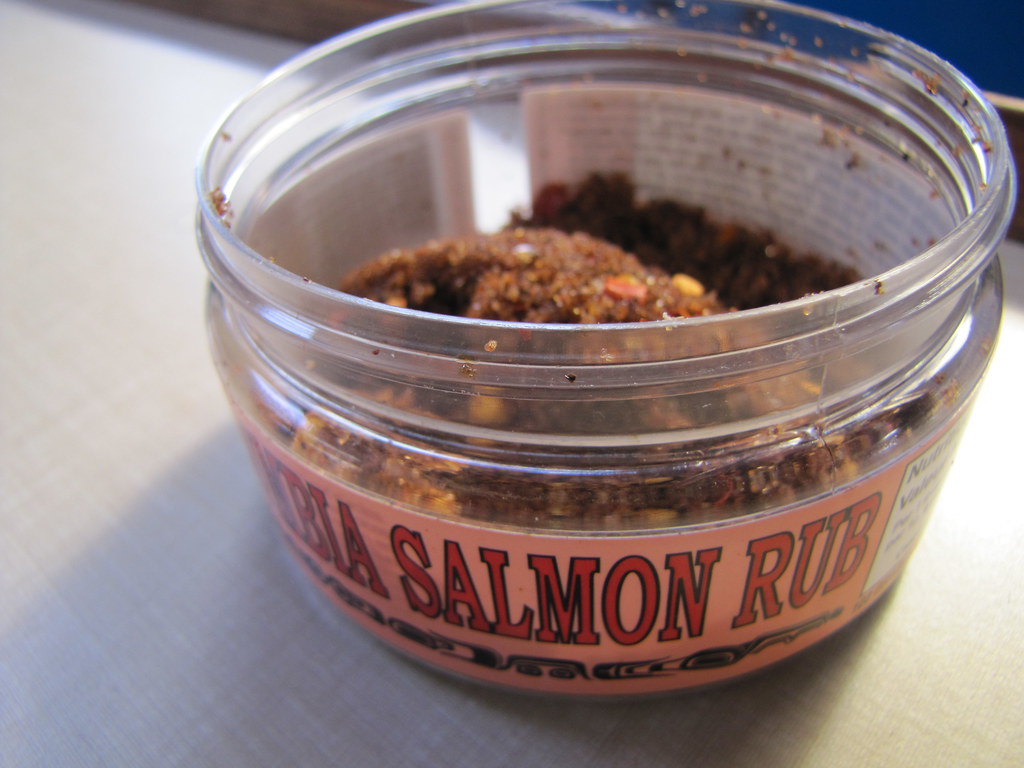 an unlikely seasoning: salmon rub
an unlikely seasoning: salmon rub
It came out great.
Shakshouka with Fresh Tomatoes & Roasted Red Pepper
(makes 2 servings)
4 plum tomatoes, chopped
1 large clove garlic, minced
1 small sweet pepper (such as bell pepper), any color
1/8 tsp cayenne pepper
1/8 tsp ground cumin
1/8 tsp ground coriander
1/4 tsp brown sugar
2 large eggs
kosher salt and freshly ground black pepper to taste
1 tablespoon extra-virgin olive oil
Heat the olive oil over medium-high on a wide saucepan or skillet. Add the garlic once fragrant (a few seconds later), add the tomatoes and a pinch of salt. Cook, stirring occasionally, for 5-10 minutes, or until juices have pooled and chunks have mostly broken down.
Meanwhile, hold pepper with tongs and carefully blacken all sides of it by holding it over an open flame. Once sufficiently blackened and crispy, transfer pepper to a plastic bag and seal shut. Let sit for 5 minutes to soften the skins. Remove from bag, and once cool enough to handle, gently peel or scrape off the skins and discard. Finely chop the pepper and remove any white pith.
Add the chopped roasted peppers to the tomato sauce, along with all the spices and continue to cook another 5-10 minutes, stirring occasionally. Taste for seasoning, adding any salt or spices as desired. Gently break the eggs one at a time and place them close to the center of the pan in the eggs (or where it’s most hot). Reduce heat to medium-low and let the eggs poach uncovered until whites have turned opaque, about 6-8 minutes. Carefully transfer to serving plates and enjoy with bread.
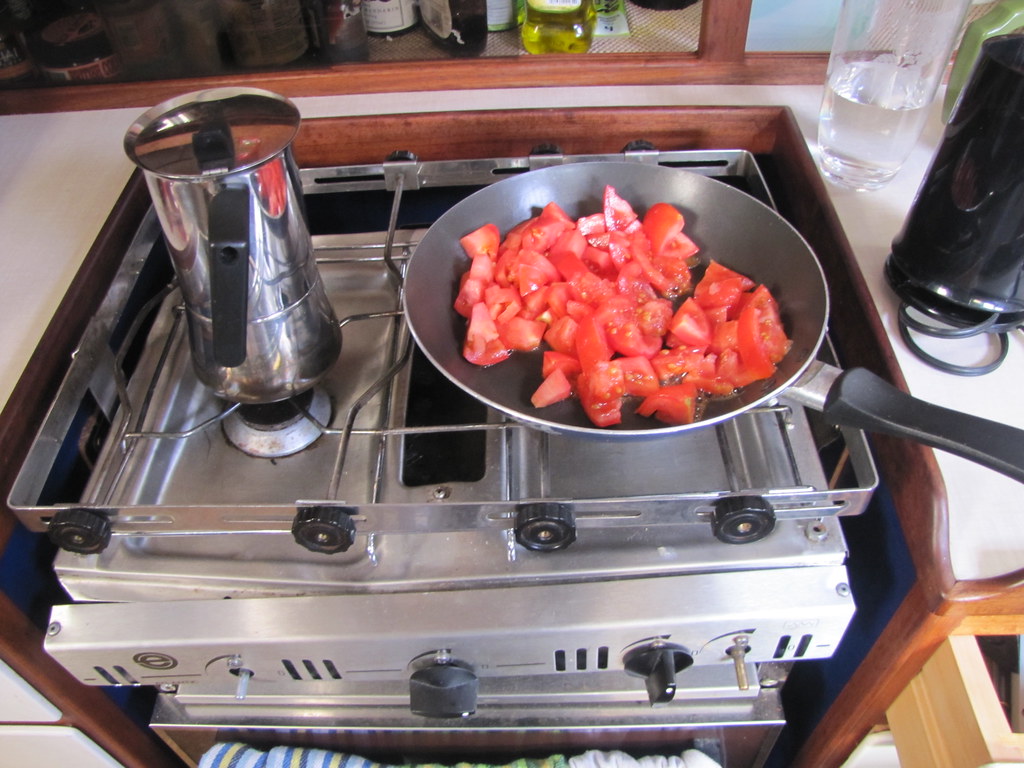
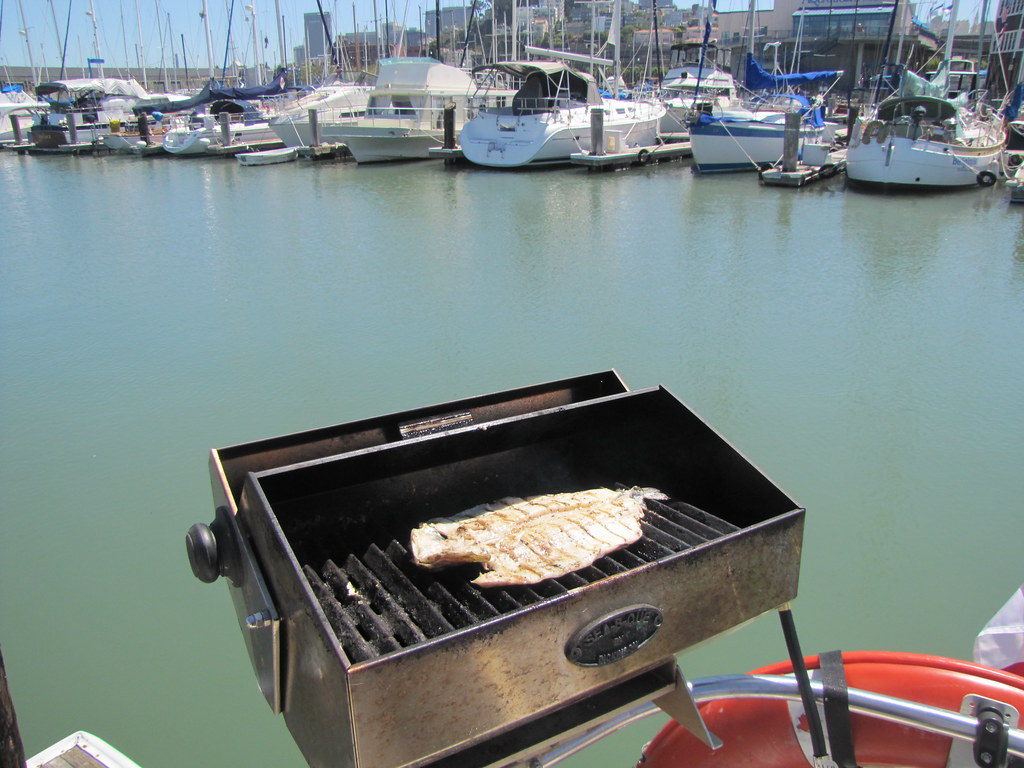
16 Responses
Clare
You just restored my faith about cooking in small kitchens!
Clare
You just restored my faith about cooking in small kitchens! I am about debating moving into a place with a MUCH smaller kitchen than I am used to.
Krista (kristastes)
LOVE shakshouka! my local coffee shop is owned by an Israeli family and they offer this – I love their version and recreate it all the time – they add a good amount of fresh parsley and feta crumbles…delish!
Ashley
My partner’s family is Israeli and last night I made a zucchini “lasagna” and his Mom said it reminded her of Shakshouka. I’ll have to make this now for breakfast one day!
robin
my favorite eggs and tomatoe, goes wonderfully together.
jawhara
a small tiny correction, this’s not an israeli dish it’s pure Palestinian and middle eastern dish!
love the additional spices 🙂
Cathy
It’s true the dish originates from the Midde East and I should have mentioned that, but it is very common in Israel, too!
Nora
You’ve been (temporarily) living on a boat in SF? Terrific!!
Run Fast Travel Slow
I have to admit, when I saw your photo, I thought it was huevos rancheros. Eggs and tomatoes are such a great combination, no matter the cuisine!
eat well live life
Jawhara – No dish can be pure Palisinian, since there is no distinct Palestinian cuisine. And no dish can be \pure palestinian\ when it is typically made all over the middle east and North Africa, with versions ranging from Morroco to Iraq.
Israelis aren’t claiming they invented the regional dish, however they do commonly prepare it (in the fashion they learned from Jews from Libya).
And in the argument over \ownership\ of regional dishes it is worth noting that Jesus and Abraham were eating Pita and Zaatar (although not shakshuka…) way before the first arab set foot in the territory.
Interested In Food? Here Are 5 Twitter Accounts You Should Be Following - AllTwitter
[…] menus from ever feeling like a chore. There’s Green Gumbo with Fresh Corn & Okra, alongside Shakshouka, with a little sprinkling of Napa Cabbage with Chili-Garlic Sauce and Szechuan Peppercorns. […]
Erik Michielsen
Great recipe! I fell in love with Shakshouka traveling to Israel in 2009 and the love affair continues. It is a spectacular yet simple brunch dish that feeds a large room, draws rave reviews, and can bring many cultures together around rapturous conversation. Pair it with Mediterranean mezza, fresh juices and, sparkling wines / champagne.
Mesho
To “eat well live life”:
You have a lot of nerve talking about something you don’t know. Clearly you’ve never been to Israel or the Occupied Palestinian Territories. There IS a DISTINCT PALESTINIAN culture and cuisine and the PALESTINIAN PEOPLE have always existed and will continue to exist.
It may be true that the dish originated in Tunisia, and so this is an Arab dish. The reason it is so popular in Israel today is because Tunisian Jews brought the dish with them.
David
Actually we did not bring it with us fromTunisia or Libya (they make it different there anyhow) but from the local Palestinians.
Lets not fall prey to wanting to hide everything.
David
By the way ‘eat well live life’ I don’t think any serious historian would argue that Palestinians came after the Arab conquest or are pure ethnic Arabs. They are an Arabised people and probably have just as much to do with Jesus and Abraham as real Jews
Shakshouka | letecestfaitpourjouer
[…] parlé d’un petit-déjeuner traditionnel israélien dont il avait pris connaissance sur un blog. Après quelques recherches, j’ai appris que cette recette était courante aussi en Tunisie […]